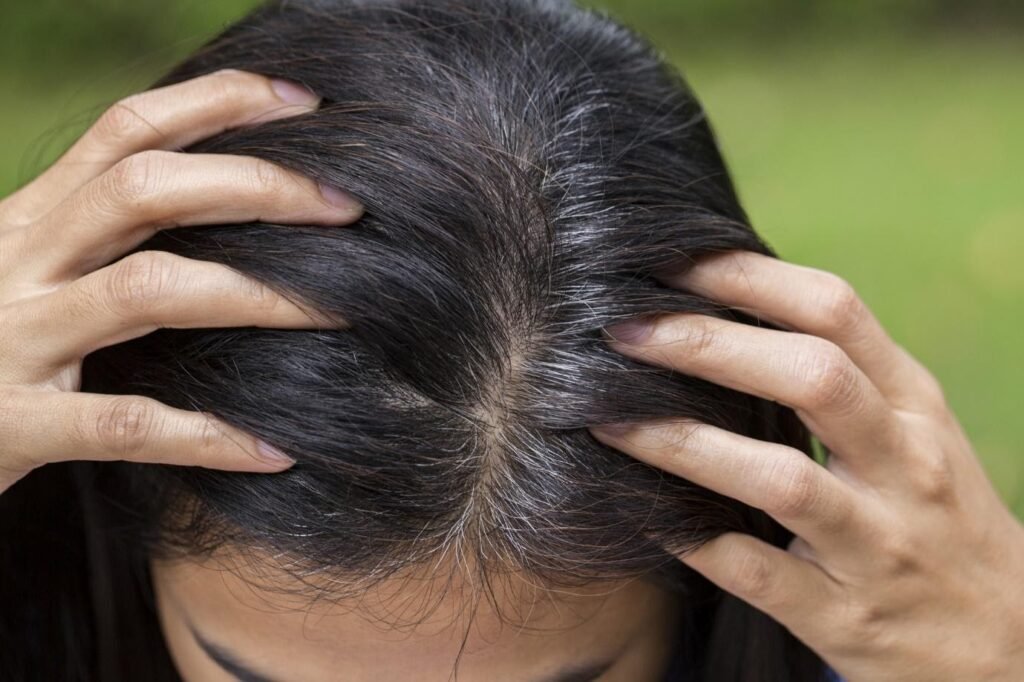
How to Tell If Your Losing Hair: A Guide
Are you worried about going bald? Suspect that you might be losing hair? Well, first and foremost, you should stop worrying because stress can only make the issue worse.
Furthermore, hair loss is categorized into two categories: hereditary and reactive. However, even genetic hair loss can be mitigated to some extent.
In this article, we will cover how to tell if you’re losing hair.
So keep reading to learn more.
Health Conditions That Can Cause Hair Loss
In medicine, hair loss is often diagnosed as a condition itself. However, it is often a byproduct of a greater problem. For instance, it can simply act as an early warning to something that should worry you more.
The health of your hair follicle is directly related to the function and health of your endocrine system. For people with conditions such as polycystic ovary syndrome, which is hard to determine, hair thinning is one of the earliest signs, accompanied by acne and body hair.
PCOS patients can have elevated levels of testosterone, which leads to androgenetic alopecia. This is most often confused with DHT-reactive hair growth, which makes natural hair droppings more regular, something that can make a person worrisome.
Or hyperthyroidism/hypothyroidism can lead to hair loss as well. Hair loss can alert you of nutritional deficiencies or hormonal imbalances as vitamin B12, D, and Iron deficiencies lead to hair loss.
The point is that listening to the body can help uncover the ailments. Take note of the hair loss, and other symptoms, speak to your doctor, and get a blood test. Don’t be afraid to stand up for your body.
How to Tell If Your Losing Hair: Receding Hairline and Thinning Hair
Not all hair loss is the same. Identifying the exact type of problem will help you get to the bottom of it. The most common cause of hair loss is pattern baldness, which is hereditary. It happens to occur gradually as you age.
One might notice bald spots, thinning hair, or a receding hairline. If you are noticing thinning at the temples, that signals follicle malfunction. In this case, it’s best to speak to a dermatologist and screen yourself for deficiencies.
If the hair loss is gradual, slow, and family members have experienced the same, pattern baldness is the likely cause. However, if hair loss occurs months after pregnancy, it might be telogen effluvium.
Therefore, you shouldn’t treat hair loss as just hair loss. It’s something more intricate. Losing your hair is bad, but there are other things to worry about.
What Does Shedding Mean?
Even though shedding is worrisome, it’s quite common after trauma, such as surgery or childbirth. Others might experience intense stress and emotional trauma which leads to hair loss.
Even inconsequential changes, such as changing birth control, can take a toll on your body and lead to unexpected changes in internal balance. If you’ve been going through a rough patch in life and shedding is prominent, there is a silver lining.
All of the hair can come back. So take care of the body, focus on your mental health, and manage your stress. With women in particular, stress (cortisol) is a great contributor to hormonal balance, which can disrupt the hair-growth cycle.
Bald Patches, Full-Scalp Baldness, Loss of Eyelashes and Eyebrows
With conditions such as alopecia universalis and alopecia areata, hair loss is a byproduct of immune system malfunction. This hair loss is sudden and will often leave circular patches of bald.
It is common for this condition to reoccur, and a small percentage of people will also experience eyebrow/eyelash hair loss on top of the baldness. However, they might not experience these symptoms altogether.
This is a chronic condition, so the sooner it is treated, the better results will be.
Effective Treatment for Thinning Hair
If you find yourself scouring the aisles of your drug mart and buying $100s worth of biotin and keratin, hold up a moment. Even though it is a great supplement for nail/hair growth, the efficacy of the two is quite limited and most effective for nails.
Not to mention, high doses of the two can interfere with blood tests, which will worsen the likelihood of determining the cause of hair loss if you go to get a test.
Unless there is a severe deficiency, it’s quite uncommon for supplements to fill the gap. It’s preferable that you incorporate drastic lifestyle changes, such as decreased stress and dietary modification.
If you are looking to improve the overall quality of your hair, there are some treatments, such as Nutrafol, which consists of curcumin, turmeric, and ashwagandha, DHT rebalance, saw palmetto, vitamin B5, rosemary, and much more.
You can also try these hair growth pills for women, which are quite effective. With cases that are stress-related and/or caused by processed treatment, such as bleaching, your hair will return. All you have to do is wait and buy some controlling products to keep the stragglers under the keep.
If it’s hormone-related, speak to a doctor and get some blood work. You might feel like that’s excessive, but it really isn’t. You are trying to determine the greater picture of your health and not just the aesthetic of your hair.
The reason women don’t seek treatment because they feel they are not taken seriously and don’t want to burden their health care providers with concerns. However, your concerns are valid, and hair loss is connected to many other conditions that are worth the effort.
Your Health
Now that you know how to tell if you’re losing hair, you are well on your way to make sure that you get your health in order. As long as you realize that hair loss might be caused by greater issues and you get them checked out, then you will be able to balance out your health once more.
If you’re interested in similar articles, feel free to go through our categorical pages at the top of the website.































